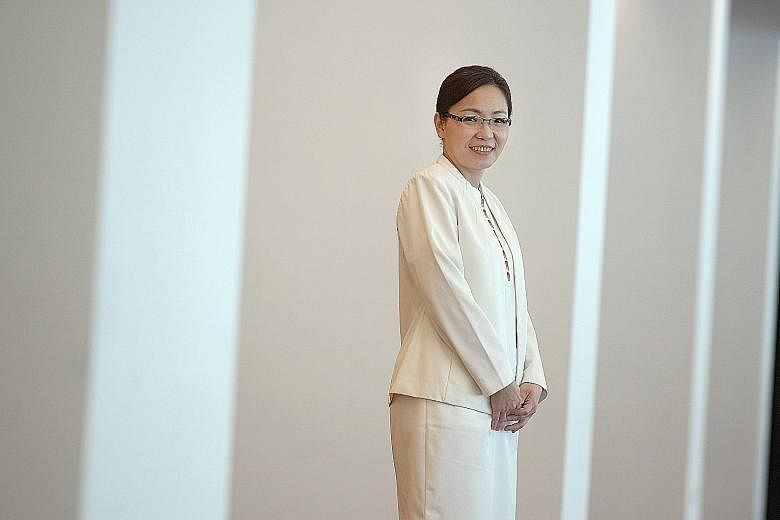Over the course of 31 years as a nurse, Ms Ang Kim Wai has worked her way up from a diploma to a master's degree.
The 52-year-old is now an advanced practice nurse at Tampines Polyclinic, where she works to help people with chronic conditions stay healthy.
The polyclinic's doctors treat the more complex cases, while she manages those whose conditions are relatively stable. Previously, Ms Ang said, her work tended to be more focused on achieving specific tasks.
"It's not just about medication now, but about patients' needs, their family situations and how you can give them individualised care," she said.
"As an advanced practice nurse, we can spend more time with each patient and explain their conditions to them in a more in-depth way."
In recent years, the Health Ministry (MOH) has gone on an aggressive drive to increase the number of such highly skilled nurses.
Last year, there were 172 of them, compared with just 88 three years before. The ministry is aiming to have 330 advanced practice nurses in three years' time.
They make up just a tiny fraction of the 33,726 nurses who were working in the public and private sectors last year.
However, their qualifications mean that they can play an expanded role in healthcare. For example, some prescribe medicine and even lead clinics in primary and community care institutions.
This is something that pharmacists can also be trained to do, said Health Minister Gan Kim Yong at the National Seminar on Productivity in Healthcare yesterday.
"With a better-trained workforce of nurses, pharmacists and therapists, we can expand their roles to make the best use of their advanced training in team-based care to provide better care and achieve better outcomes for patients," he said.
At the seminar, which was jointly organised by MOH and the Agency for Integrated Care, awards were given to innovative projects that improve productivity.
One of the winners was Khoo Teck Puat Hospital, where experienced nurses now monitor some patients undergoing cataract removal during surgery, rather than an anaesthetist. They talk with patients during the operation, and even hold their hands to reassure them.
Said adjunct associate professor Yip Chee Chew, who heads the ophthalmology and visual sciences department: "We need to leverage on the human touch, and the nurses now feel that they are more involved and engaged."


